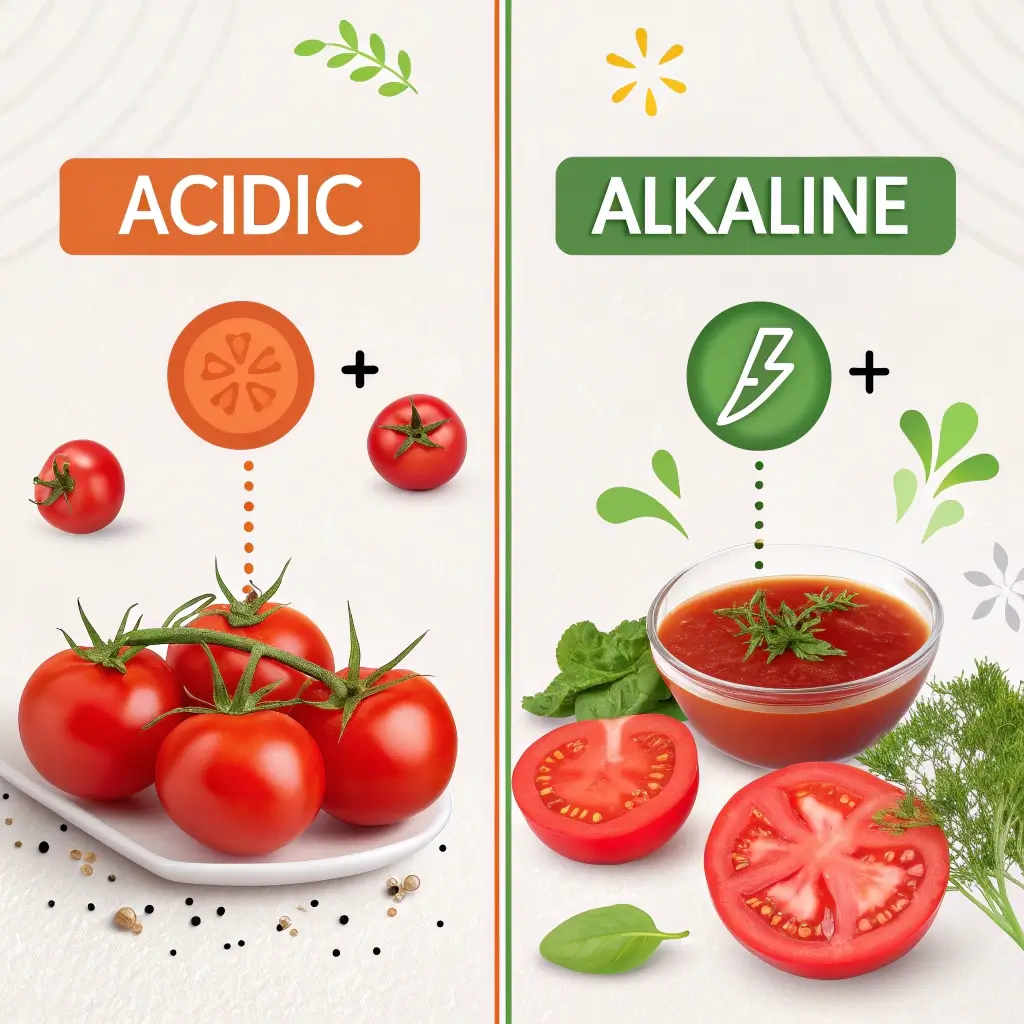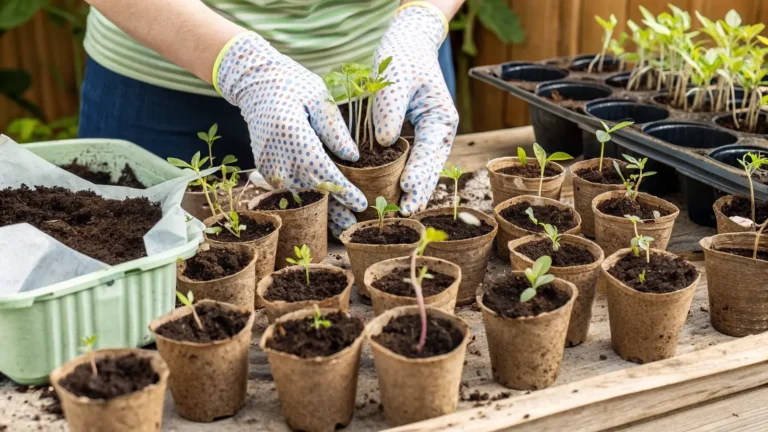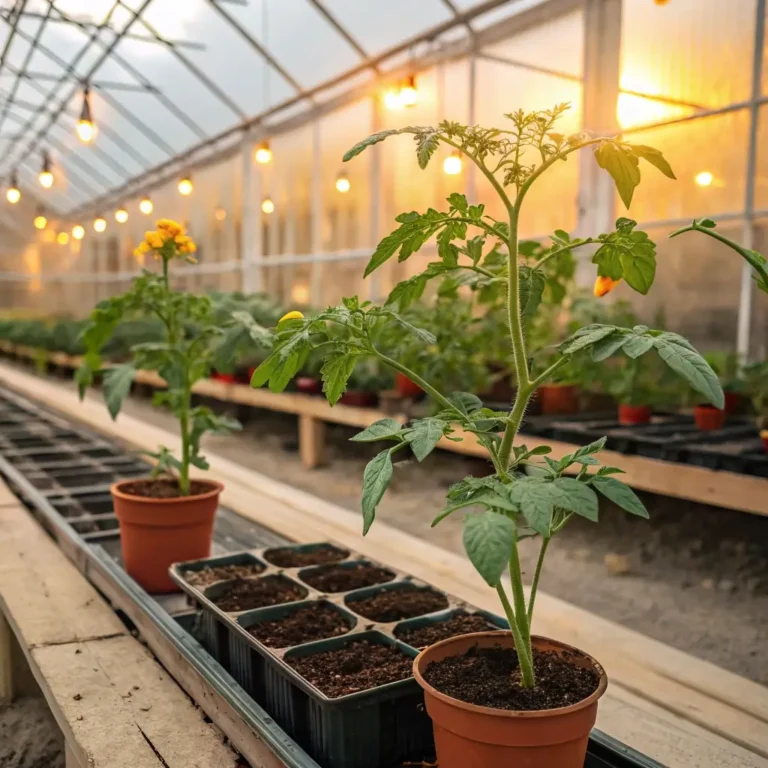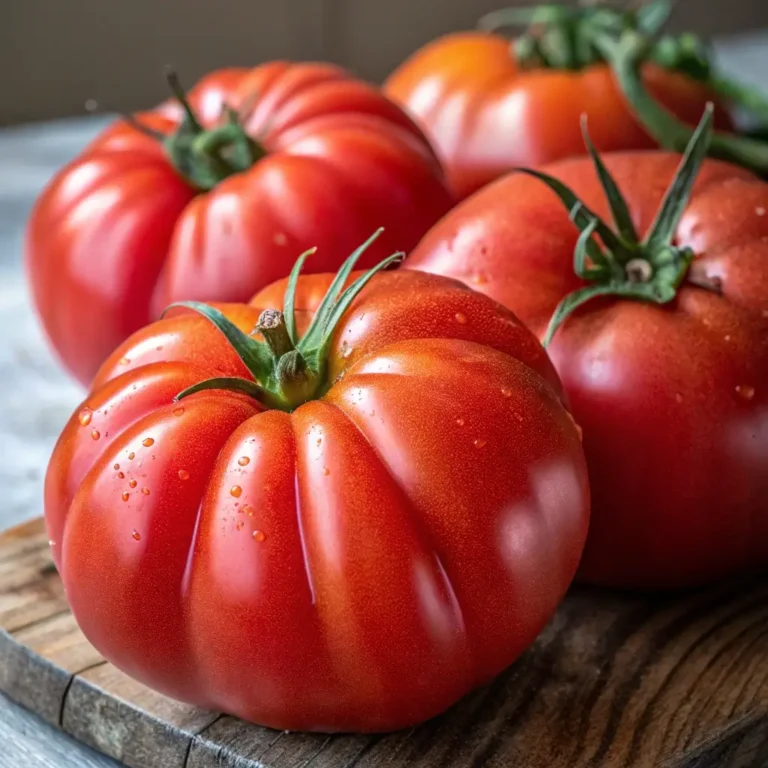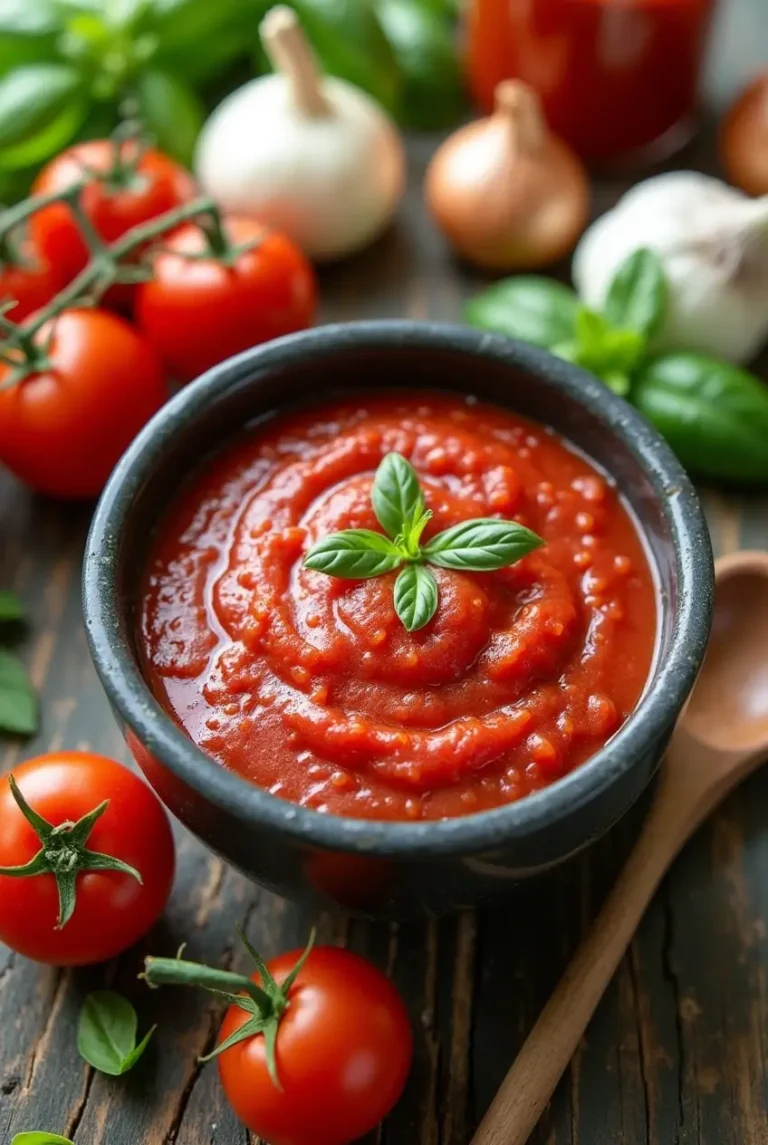Are Tomatoes Acidic or Alkaline? A Detailed Look at Tomato pH (5 Facts!)
Table of Contents
Introduction
Did you know that tomatoes, despite being botanically classified as fruits, are among the most misunderstood foods when it comes to their pH level? Many people assume tomatoes are alkaline because they’re nutritious, but is this actually true? The question “Are tomatoes acidic or alkaline?” impacts everything from your digestive health to how you prepare certain recipes. With a pH typically ranging from 4.3 to 4.9, tomatoes fall definitively on the acidic side of the pH scale—a fact that affects not only their flavor profile but also how they interact with your body’s systems. This detailed exploration will uncover the science behind tomato acidity and what it means for your diet and cooking techniques.
Key Facts About Tomato Acidity
1. The pH Scale of Tomatoes
Fresh tomatoes typically have a pH between 4.3 and 4.9, making them definitively acidic on the pH scale (where 7 is neutral). This acidity comes primarily from citric acid, malic acid, and ascorbic acid (vitamin C).
2. Varieties and Their Acidity Levels
- Cherry Tomatoes: pH 4.3-4.5 (more acidic)
- Roma Tomatoes: pH 4.4-4.7 (medium acidity)
- Beefsteak Tomatoes: pH 4.6-4.9 (less acidic)
- Yellow/Orange Varieties: Generally less acidic than red varieties, often around pH 4.7-4.9
3. Cooking Changes Acidity
Cooking tomatoes can actually increase their acidity, which is why tomato sauces and pastes often taste more tangy than fresh tomatoes. The concentration of acids during the reduction process is responsible for this effect.
4. Ripeness Affects pH Level
As tomatoes ripen, their pH typically rises slightly (becomes less acidic). Unripe, green tomatoes can have a pH as low as 3.9, while overripe tomatoes might reach 4.9.
5. Alkalizing Effect Debate
Despite being acidic in their natural state, some nutritionists argue that tomatoes may have an alkalizing effect once metabolized in the body—a concept called the “ash residue theory.” However, this remains scientifically contested.
Health Implications of Tomato Acidity
For Digestive Health
The acidity in tomatoes can trigger acid reflux or heartburn in sensitive individuals. According to a 2019 survey, approximately 28% of adults with GERD (Gastroesophageal Reflux Disease) report tomatoes as a trigger food.
However, for many people, the nutritional benefits outweigh these concerns. Tomatoes contain:
- Lycopene (powerful antioxidant)
- Vitamins A, C, and K
- Potassium
- Folate
For Special Diets
Acid Reflux Diets
Those following low-acid diets might need to limit tomato consumption or prepare them in ways that reduce acidity.
Alkaline Diets
Despite claims that an alkaline diet improves health, research from the Journal of Environmental and Public Health indicates limited evidence that food significantly alters blood pH, which is tightly regulated by the body.
Reducing Tomato Acidity in Cooking
If you’re sensitive to acidic foods but love tomatoes, try these techniques:
1. Add a Pinch of Baking Soda
Adding ⅛ teaspoon of baking soda to tomato sauce can neutralize acids and reduce tanginess. Be careful though—too much can create a soapy taste and mushy texture.
2. Incorporate Sweet Vegetables
Carrots, bell peppers, or onions caramelized before adding tomatoes can balance acidity naturally. These vegetables contain natural sugars that counteract the acidic bite.
3. Use Low-Acid Tomato Varieties
Yellow or orange tomatoes contain less acid than red varieties. Heirloom varieties like Brandywine or Cherokee Purple also tend to be less acidic.
4. Slow Cooking Method
Slow cooking tomatoes allows their natural sugars to develop more fully, creating a better acid-sugar balance. A 3-4 hour simmer can transform an acidic sauce into something much mellower.
Tomatoes in Preservation and Canning
The acidity of tomatoes plays a crucial role in food preservation. With a pH below 4.6, tomatoes are acidic enough to prevent botulism spores from growing when properly canned. However, modern tomato varieties are sometimes less acidic than traditional ones, which is why many canning recipes now recommend adding lemon juice or citric acid as a safety measure.
Culinary Applications Based on Acidity
Understanding tomato acidity can help you make better culinary choices:
- High-acid tomatoes (like Early Girl or Roma) make excellent marinara sauces and canned products
- Lower-acid tomatoes (like most yellow varieties) work better in fresh applications like salads
- For creamy dishes, the acidity helps cut through richness (explaining why tomato and cream or cheese pair so well)
Conclusion
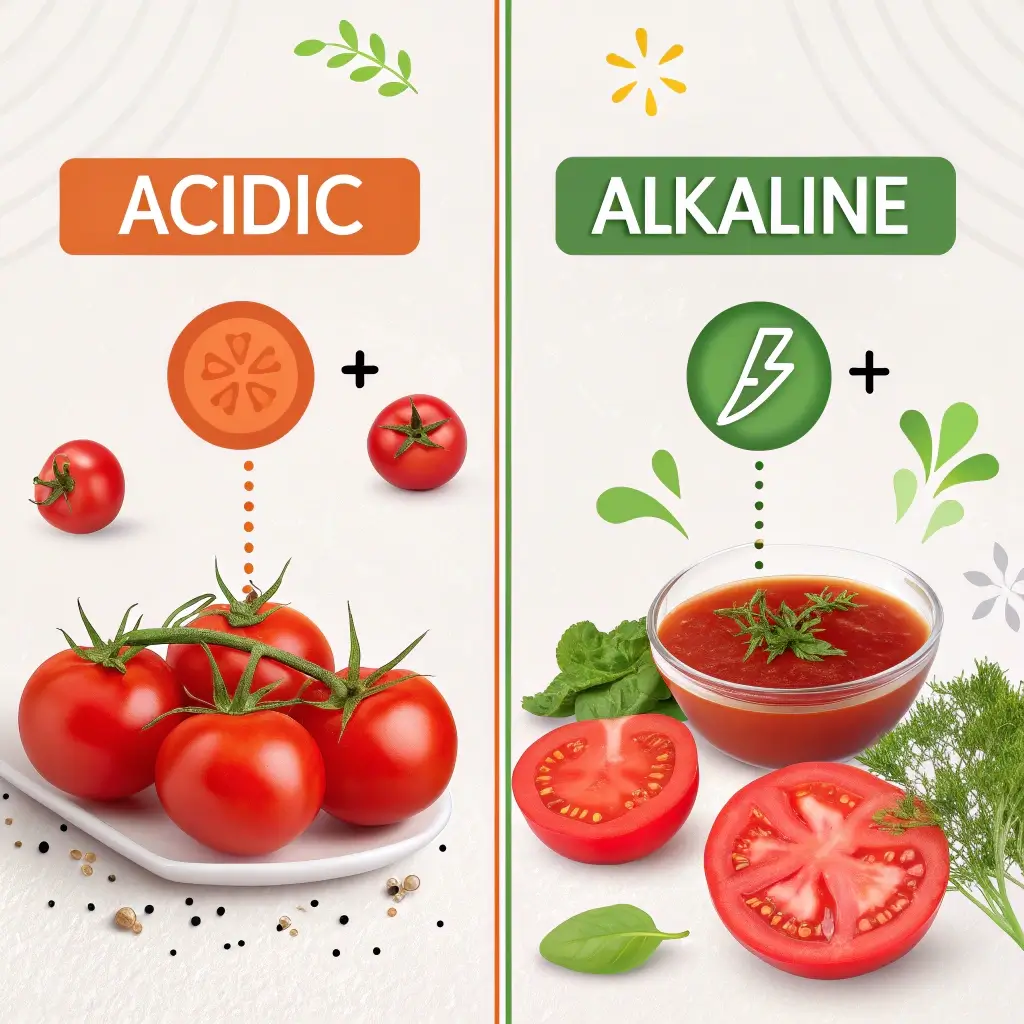
Tomatoes are definitely acidic fruits with pH levels between 4.3 and 4.9, despite some claims about their alkalizing effects after metabolism. Their acidity contributes significantly to their distinct flavor and versatility in cooking. For those with acid sensitivity, there are numerous techniques to enjoy tomatoes while minimizing discomfort. Understanding the science behind tomato acidity allows us to make better choices about how we consume and prepare this nutritionally dense food.
Whether you’re managing digestive concerns, perfecting your pasta sauce, or simply curious about food chemistry, the acidity of tomatoes plays a more significant role in our culinary and nutritional lives than most people realize. Next time you bite into a juicy tomato, you’ll have a new appreciation for the complex interplay of acids that creates its characteristic tang.
FAQs
Are yellow tomatoes less acidic than red tomatoes?
Yes, yellow and orange tomatoes generally have higher sugar content and lower acid levels than red varieties, making them taste sweeter and less tangy.
Can cooking tomatoes make them less acidic?
Contrary to popular belief, cooking concentrates tomatoes’ acids, potentially making them taste more acidic. However, adding ingredients like sugar, baking soda, or butter during cooking can help neutralize this acidity.
Do tomatoes become more alkaline when digested?
Some proponents of alkaline diets suggest tomatoes have an “alkalizing effect” after metabolism, but scientific evidence for food significantly altering blood pH remains limited, as your body tightly regulates its pH balance.
Are there any truly low-acid tomato varieties?
Yes, varieties specifically bred to be “low-acid” include Sweetie, Carolina Gold, and Sun Gold. These typically have a pH closer to 4.8-4.9 and taste noticeably sweeter.
Can tomato acidity affect how we pair them with other foods?
Absolutely. Tomato acidity makes them excellent for cutting through fatty foods (like cheese or olive oil) and enhancing flavors. This is why tomatoes work so well in Mediterranean cooking, where they’re often paired with rich ingredients.

